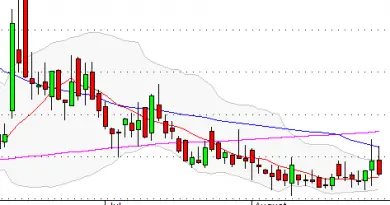What Does Volatility Mean and How You Can Use It?
What does volatility mean? The word volatility is often used to describe the rate at which stock prices move up or down. In other words, it's the rate of change in price for a stock that you should be looking for. If the stock goes up by 20% for one day, that means it is going to go up another 20% for the next day.
The volatility index is created by the Dow Jones Industrial Average. Every time the index moves up, the volatility index goes down, and vice versa for the volatility index when it moves down.
Volatility can be used as a general term for describing how volatile a stock is. However, a particular stock may actually be more volatile than another. For example, a stock that is only recently created may have much less volatility than a stock that has been around for some time.
To know which stock is going to go up and that is going to go down, you need to take a look at a company's history. There are some stocks that have been rising in value for a while but have now started to drop off. When a stock drops, there are a lot of reasons why that happened. It could be that the company has a lot of debt and has been unable to get out from under it as well as it had hoped.
Another reason why a stock might go down is that the economy is doing badly, and the economy has taken a turn for the worse. In other words, a stock that was once a great buy is now considered poor value because it is losing value.
This is what volatility means, and how you should use it in your own investing. To summarize, volatility is a measure of how volatile a stock is, and it's a good way to determine whether the stock is a good buy or a bad buy.
The Dow Jones volatility index was created as a market research tool. It uses real-time data to show how the stock's price has changed over time. By using this information, you can figure out what a company's volatility means, and what factors might have caused it to move up or down.
For example, if you find a great stock with a high volatility index, it means it can go up quickly and then come down even more quickly. This means you should purchase it as soon as possible because you won't miss all the action. It also means that if the company goes down, you sell it before it goes back up because you might miss out on all the action.
Of course, the higher the volatility index, the more volatile the stock will be. As a result, the stock will usually be expensive. You can expect a high volatility index stock to increase in value, and you should be prepared to lose money if the stock goes down.
Photo by Steve @ the alligator farm 


